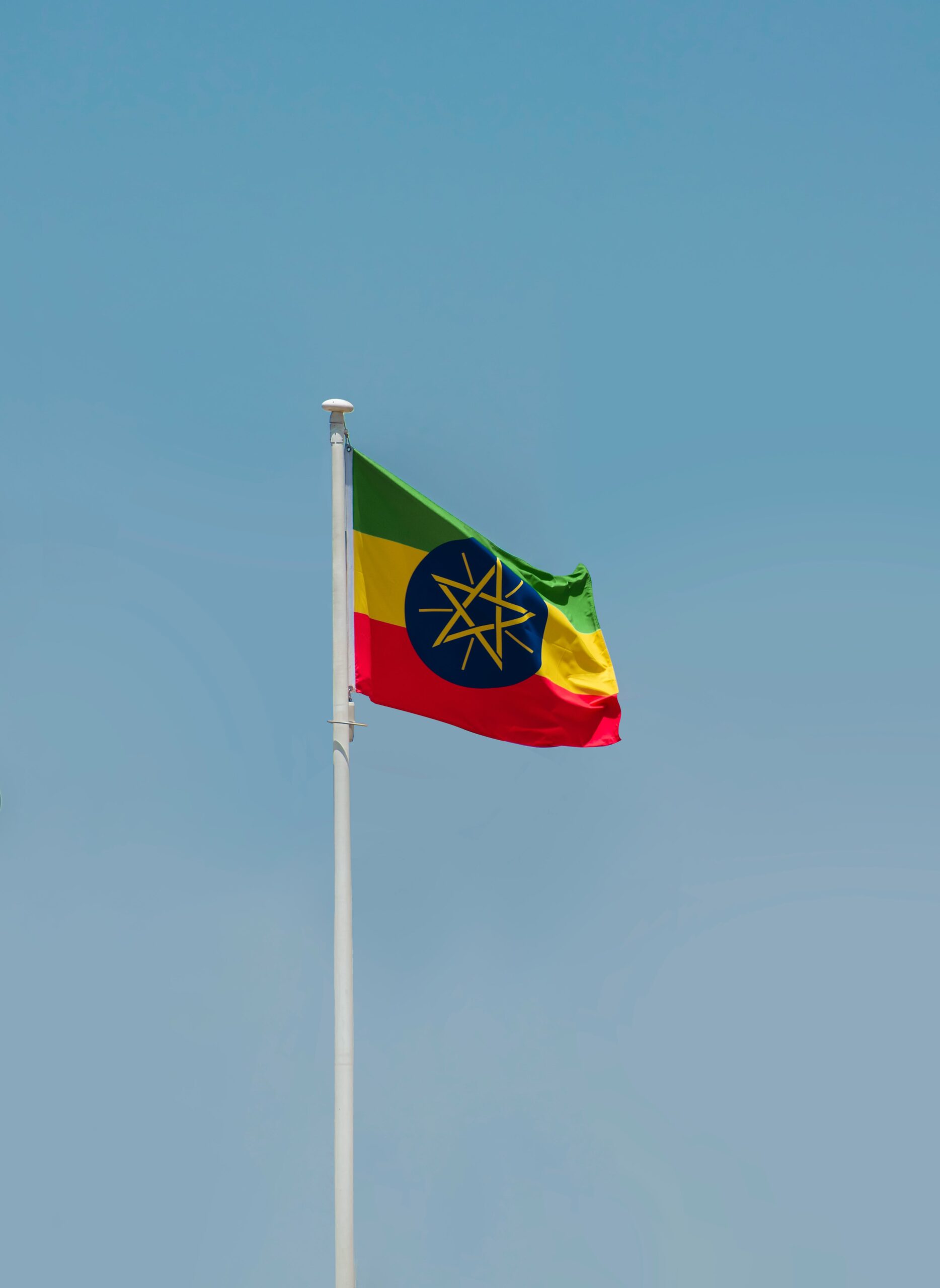What Is The Relationship Between Jamaica And Ethiopia?
The Historical Ties Between Jamaica and Ethiopia
When exploring the relationship between Jamaica and Ethiopia, it is crucial to delve into the historical ties that bind these two nations. The connection dates back to the early 20th century when Marcus Garvey, a prominent Jamaican political leader, and Pan-African visionary, advocated for black self-empowerment and unity across the diaspora. Garvey’s philosophies resonated deeply with Ethiopians, particularly during a time when Ethiopia was facing Italian colonial aggression.
One of the pivotal moments that solidified the bond between Jamaica and Ethiopia was Ethiopia’s triumphant victory over Italy in the Battle of Adwa in 1896. This event was not only a significant military achievement for Ethiopia but also a powerful symbol of resistance against European colonization. Jamaicans, who were inspired by Ethiopia’s defiance and independence, began to view the African nation as a beacon of hope and pride.
Another key figure in strengthening the relationship between Jamaica and Ethiopia is Emperor Haile Selassie I, who ruled Ethiopia from 1930 to 1974. Haile Selassie’s coronation captivated the imagination of many Jamaicans, especially those belonging to the Rastafarian movement. Rastafarians believe Haile Selassie to be the messianic figure mentioned in the Bible, further intertwining the cultural and spiritual connection between Jamaica and Ethiopia.
Through music, particularly reggae, Jamaica has continued to pay homage to Ethiopia. Reggae legend Bob Marley, a devout Rastafarian, often referenced Ethiopia in his lyrics and promoted unity among African nations. The song “War,” which features excerpts from one of Haile Selassie’s speeches, exemplifies Marley’s admiration for Ethiopia and his call for justice and equality.
The historical ties between Jamaica and Ethiopia run deep, rooted in a shared history of resilience, resistance, and cultural solidarity. The legacies of Marcus Garvey, Emperor Haile Selassie I, and Bob Marley continue to shape the enduring relationship between these two nations, transcending geographical boundaries and reminding the world of the importance of unity and brotherhood.
The Cultural Exchanges and Influences Between Jamaica and Ethiopia
Throughout history, Jamaica and Ethiopia have shared a deep cultural connection that has manifested in various exchanges and influences between the two nations. These cultural interactions have helped strengthen the bonds between the peoples of Jamaica and Ethiopia, fostering a sense of unity and mutual respect.
One of the most significant cultural exchanges between Jamaica and Ethiopia is the influence of Rastafarianism. Rastafarianism, a religious movement that originated in Jamaica in the 1930s, has strong ties to Ethiopia due to its reverence for Emperor Haile Selassie, who is seen as a messianic figure by Rastafarians. This connection has led to a cultural exchange where Rastafarian beliefs and practices have incorporated elements of Ethiopian culture, such as the use of Amharic language and Ethiopian religious rituals.
Music is another key aspect of cultural exchange between Jamaica and Ethiopia. Reggae music, which has its roots in Jamaica, has gained popularity in Ethiopia and vice versa. Ethiopian artists have drawn inspiration from reggae music, incorporating its rhythms and messages into their own musical styles. Likewise, Jamaican musicians have been influenced by Ethiopian music, particularly traditional Ethiopian sounds and instruments.
Furthermore, the cultural exchanges between Jamaica and Ethiopia extend to the realms of art, cuisine, and fashion. Jamaican art has been influenced by Ethiopian artistic traditions, while Ethiopian cuisine has found its way into Jamaican culinary practices. Additionally, the vibrant colors and patterns of Ethiopian traditional clothing have made an impact on Jamaican fashion trends.
The cultural exchanges and influences between Jamaica and Ethiopia have enriched both nations, creating a dynamic cultural landscape that celebrates their shared history and values. Through music, religion, art, and more, Jamaica and Ethiopia continue to inspire each other and the world with their rich cultural heritage.
The Diplomatic Relations and Collaborations Between Jamaica and Ethiopia
Jamaica and Ethiopia have shared a rich history of diplomatic relations and collaborations that have strengthened the bond between the two nations. The relationship between Jamaica and Ethiopia dates back to the 1960s when both countries gained independence and began to establish diplomatic ties. One of the key milestones in their relationship was the visit of His Imperial Majesty Haile Selassie I, the Emperor of Ethiopia, to Jamaica in 1966. This visit was significant as it solidified the spiritual and cultural connection between the two countries due to the reverence of Haile Selassie I within the Rastafarian movement in Jamaica.
Over the years, Jamaica and Ethiopia have engaged in various collaborations in different sectors, including education, agriculture, and culture. Both countries have benefited from exchange programs that have allowed for knowledge sharing and capacity building. For instance, Jamaica has welcomed Ethiopian students to study in its universities, fostering educational exchange and cultural understanding between the two nations.
In addition to educational collaborations, Jamaica and Ethiopia have also worked together on agricultural projects aimed at enhancing food security and sustainable farming practices. Initiatives such as knowledge-sharing on crop cultivation techniques and agricultural training programs have been instrumental in boosting agricultural productivity in both countries.
Furthermore, the cultural ties between Jamaica and Ethiopia have been significant in strengthening their diplomatic relations. Jamaica’s vibrant music scene, particularly reggae music, has had a profound influence on Ethiopian culture, with many Ethiopians embracing reggae music as a form of cultural expression. This cultural exchange has not only enriched the artistic landscape of both nations but has also fostered a sense of solidarity and mutual respect.
Moreover, Jamaica and Ethiopia have collaborated on various international platforms to address global challenges and promote peace and security. Both countries share common values of equality, justice, and human rights, which have guided their joint efforts in advocating for global peace and development. Their strong partnership in international affairs has reinforced their standing in the international community and has led to collaborative initiatives to address common challenges such as climate change and poverty alleviation.
The diplomatic relations and collaborations between Jamaica and Ethiopia have transcended geographical boundaries and are rooted in a shared history of resilience, mutual respect, and cultural exchange. Through their continued partnership, both nations have not only strengthened their bilateral ties but have also contributed to regional and global efforts towards a more peaceful and prosperous world.
Economic connections and trade partnerships between Jamaica and Ethiopia
Jamaica and Ethiopia share a historical relationship that has paved the way for economic connections and trade partnerships between the two nations. The economic ties between Jamaica and Ethiopia have evolved over the years, reflecting a shared interest in fostering economic growth and development.
One of the key aspects of the economic relationship between Jamaica and Ethiopia is trade. Both countries have engaged in trade partnerships that have been mutually beneficial. Jamaica has exported goods such as food and beverages, chemicals, and textiles to Ethiopia, while Ethiopia has exported products like coffee, spices, and leather goods to Jamaica. This exchange of goods has not only strengthened the economic ties between the two nations but has also promoted cultural exchanges and appreciation for each other’s products.
Furthermore, Jamaica and Ethiopia have also collaborated on various economic initiatives aimed at promoting investment and business opportunities. They have worked together to identify sectors where cooperation can be enhanced, such as agriculture, tourism, and technology. By sharing expertise and resources, Jamaica and Ethiopia have been able to support each other’s economic goals and aspirations.
In addition to trade and investment, Jamaica and Ethiopia have cooperated on initiatives that promote sustainable economic development. Both countries recognize the importance of fostering economic growth that is environmentally sustainable and socially inclusive. As such, they have worked together on projects related to renewable energy, conservation, and sustainable tourism.
The economic connections between Jamaica and Ethiopia are not only based on financial transactions but also on a shared commitment to promoting prosperity and well-being for their citizens. By collaborating on trade partnerships, investment opportunities, and sustainable development projects, Jamaica and Ethiopia have demonstrated a strong dedication to building a future that benefits both nations economically and socially.
Shared Values and Common Interests in International Affairs Between Jamaica and Ethiopia
In the realm of international affairs, Jamaica and Ethiopia share a deep-rooted relationship built on common values and interests that extend beyond their geographical boundaries. These two nations have historically aligned on various global issues, contributing to a strong and enduring partnership.
One of the foundational pillars of the relationship between Jamaica and Ethiopia is their shared commitment to upholding justice, equality, and human rights on the global stage. Both countries have been vocal advocates for peace and stability in their respective regions and beyond, often collaborating in multilateral forums to address pressing issues such as poverty alleviation, climate change, and social justice.
Furthermore, Jamaica and Ethiopia have a long-standing tradition of mutual respect and support for each other’s sovereignty and independence. This solidarity has been demonstrated through diplomatic engagements, where leaders from both nations have reaffirmed their commitment to upholding the principles of self-determination and non-interference in domestic affairs.
Culturally, Jamaica and Ethiopia have influenced each other in profound ways, forging connections that transcend borders and celebrate diversity. From music and art to cuisine and literature, the cultural exchanges between these two nations have enriched their societies and fostered a sense of shared heritage.
In the economic sphere, Jamaica and Ethiopia have explored opportunities for collaboration and trade partnerships that benefit both countries. By leveraging each other’s strengths and resources, they have laid the groundwork for sustainable development and economic growth, paving the way for a brighter future for their citizens.
As active members of the global community, Jamaica and Ethiopia have stood together on critical issues such as human rights, peacekeeping, and international cooperation. Their collaborative efforts in organizations like the United Nations and the African Union have underscored their shared vision for a more just, equitable, and peaceful world.
The relationship between Jamaica and Ethiopia is characterized by a deep sense of mutual respect, common values, and shared interests in advancing peace, prosperity, and equality on the world stage. Through their enduring partnership, these two nations continue to inspire others and make a positive impact in shaping the future of international relations.
Conclusion
Jamaica and Ethiopia have a long and storied history that has fostered a deep and meaningful relationship between the two nations. From their shared historical ties rooted in the legacy of Marcus Garvey to the modern-day cultural exchanges, diplomatic relations, economic connections, and shared values on the international stage, Jamaica and Ethiopia continue to strengthen their bond and collaboration in various fields.
The historical ties between Jamaica and Ethiopia date back to the early 20th century when Marcus Garvey, the renowned Jamaican political leader, and activist, advocated for black empowerment and unity on a global scale. Garvey’s influence extended to Ethiopia, where his Pan-African philosophy resonated with Emperor Haile Selassie I, who is highly revered by the Rastafarian community in Jamaica. This historical connection laid the foundation for a shared sense of identity and solidarity between the two countries.
Cultural exchanges and influences have played a significant role in shaping the relationship between Jamaica and Ethiopia. The Rastafarian movement, which has its roots in Jamaica, reveres Ethiopia as the spiritual homeland and Emperor Haile Selassie I as the divine figure. This cultural exchange has led to a deep appreciation for Ethiopian culture, music, and traditions within Jamaica, while also fostering a sense of cultural kinship between the two nations.
Diplomatic relations and collaborations between Jamaica and Ethiopia have strengthened over the years, with both countries maintaining embassies in each other’s capitals. High-level visits and cultural exchanges have further enhanced diplomatic ties, leading to increased cooperation in areas such as education, healthcare, and cultural preservation. These partnerships have reinforced the bond between Jamaica and Ethiopia and facilitated mutual growth and development.
Economic connections and trade partnerships between Jamaica and Ethiopia have also contributed to their relationship. Both countries have recognized the potential for economic collaboration and have worked towards enhancing trade relations and investment opportunities. Initiatives such as joint business forums and trade delegations have helped foster economic growth and create new avenues for cooperation between Jamaica and Ethiopia.
Shared values and common interests in international affairs have further solidified the relationship between Jamaica and Ethiopia. Both countries share a commitment to promoting peace, security, and sustainable development in the international arena. Their collaboration in multilateral forums such as the United Nations reflects a shared vision for a more just and equitable world, underpinned by the principles of unity, solidarity, and mutual respect.
The relationship between Jamaica and Ethiopia is a testament to the enduring bonds forged through history, culture, diplomacy, trade, and shared values. As these two nations continue to collaborate and grow together, their partnership serves as a beacon of cooperation and friendship in a rapidly changing world. Jamaica and Ethiopia stand united in their commitment to building a brighter future for their people and contributing to global peace and prosperity.






